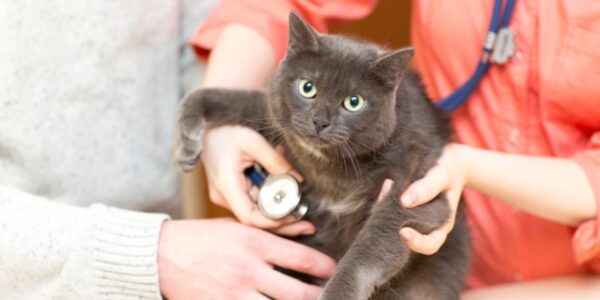At Vets in Endeavor Hills, we recommend de-sexing male and female cats at 12-16 weeks of age, and male and female dogs 6-13 months of age. With state of the art surgical facilities, high quality pain relief, and human grade anesthetics, we can provide your pet with the highest possible standard of care and ensure minimal discomfort. Pain relief is administered both before and after the procedure so your animal remains comfortable, and we will also give you additional pain relief medication to help your pet through the first few days following their surgery.
The procedure
Castration and spaying operations are day procedures, so your pet will be admitted in the morning and during this time you will have a consultation with one of our nurses to go through admission forms as well as our surgery safety protocols including:
- Pre-anaesthetic blood testing
- Intravenous fluid therapy; and
- Anaesthetic monitoring equipment
To learn more about our surgical protocols and optional extras, please visit our surgery preparation page. During admission, the nurse will also be able to organise a discharge time with you and of course we will let you know as soon as your pet wakes up.
After surgery, your pet will need to rest for between 7-10 days. This means no vigorous exercise (avoid letting them jump up and no walks). Stitches will be removed at a complimentary check-up 10 days after surgery. To learn more about your pet’s care requirements after an operation, head to our before and after surgery information page.
Why de-sex your dog?
De-sexing of male and female dogs is recommended between 7 and 13 months of age, depending on breed. Undesexed female dogs are at risk of developing Pyometra (a life threatening infection of the uterus) and mammary tumours (breast cancer). They will come into season twice a year (heat periods with bleeding and attractiveness to male dogs for 2-3 weeks) and are a risk of becoming pregnant sometimes with other breeds that might result in overly large puppies that are difficult to birth. Undesexed male dogs are more prone to wanting to wander, escaping yards and urine marking everything in sight. Aggression towards other dogs and people can develop after 14 months in age, and they are at risk of developing problems and cancers of the prostate and testicles later in life. This is why Vets on Endeavour Hills recommends de-sexing.
There are numerous benefits associated with de-sexing your dog including:
For female dogs:
- No unwanted litters of puppies
- No coming into heat- characterized by bleeding and attracting the attention of male dogs
- The risk of mammary tumors (breast cancer) is virtually eliminated if the dog is de-sexed before their first season.
For male dogs de-sexed before puberty:
- Less likely to mark territory with urine
- Less aggressive towards older dogs
- Less likely to wander
- Unlikely to develop prostate, testicular or perineal hernia problems later in life
Why de-sex your cat?
Some of the benefits of de-sexing a male cat
- Less urine marking (spraying)
- Less territorial (less likely to fight other cats)
- Less likely to develop Feline Immunodeficiency Virus (Feline AIDS)
- Less likely to develop Feline Leukemia
- Less likely to roam
Some of the benefits of de-sexing a female cat
- No more periods of heat (characterised by meowing, rolling around on the floor, and generally restlessness)
- Lessened risk of a uterus infection (pyometra)
- Decreased risk of breast cancer (mammary neoplasia)
- No unwanted litters of kittens




